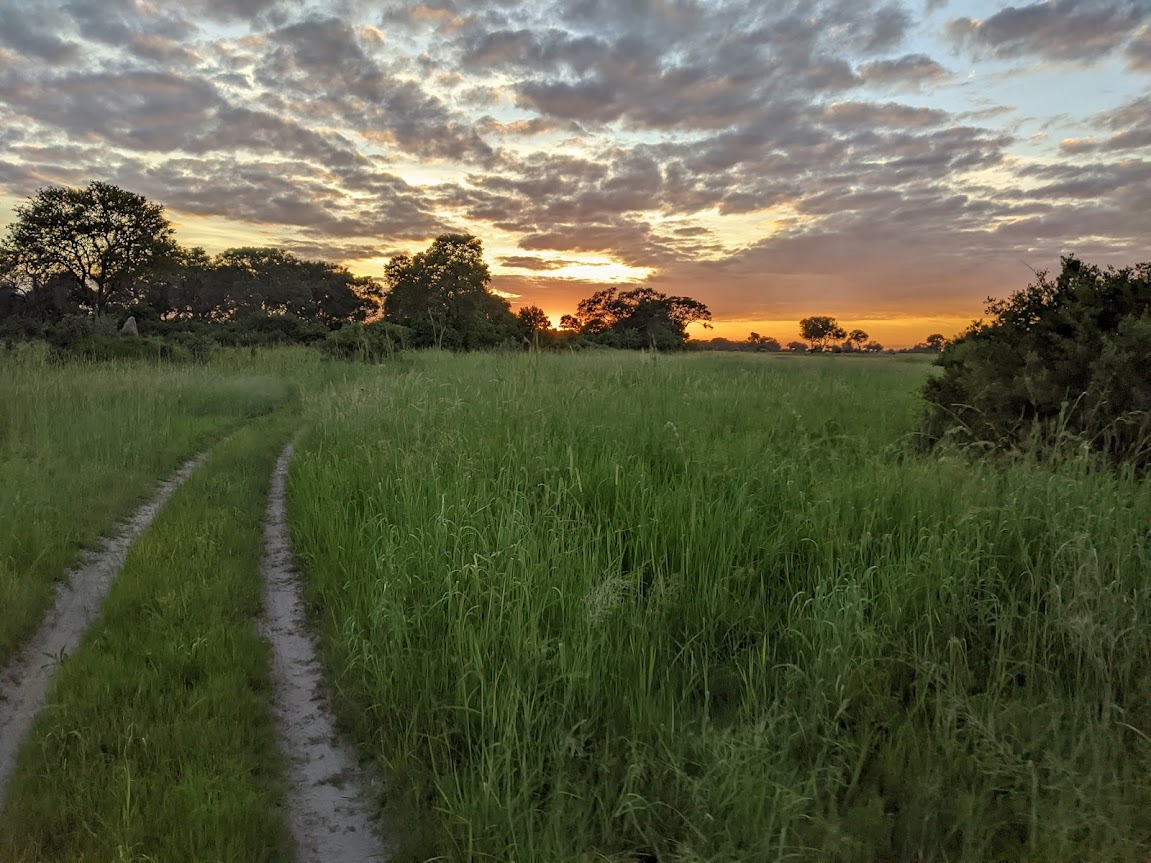1) Every herd of zebra has to contain exactly one wildebeest. No less, and definitely no more. The zebra won’t drive off additional wildebeests, but the first wildebeest sure will.

2) Don’t drink the tap water. No, I really mean it. DON’T. Not even a drop. You will regret it.
3) Antelopes are a surprising amount of fun. Everybody disparages them as the dullest game to find — one step above birds, and definitely below even the zebras and giraffes, who are considered still less interesting than any carnivores. But the truth is, there are a LOT of different kinds of antelopes, most of whom are beautiful and all of whom are different enough from each other that each new kind will show you something you haven’t seen before. I had most fun with the primates and the wild dogs, but finding new kinds of antelopes was surprisingly great.


4) Safari camps are not “camps” by any normal standard. They’re high-end glamping at minimum and de facto luxury hotel rooms at maximum. I was worried that I wouldn’t be comfortable in them, but I absolutely had no need to be. Most of them were as comfortable as anyplace I’ve ever vacationed.

5) There’s a massive difference between habituated animals and the kind who don’t see humans regularly. You can’t get close to most animals… but since the ones who live in safari-drive areas are almost all habituated, you don’t really notice that until you get somewhere which doesn’t do game drives regularly. Then suddenly you can’t get within a hundred yards of anything, and you remember that most things out there think you smell like a predator. It’s lovely to get a sense for what it feels like to be unnoticed by the wildlife, to have it be comfortable enough with you not to move away. But it’s also unnatural. That’s just not what we are to most animals, and we essentially have to train them to accept us — even the wild ones.

6) Wild animals of different species live together in friendly partnerships to a degree I had absolutely no idea was possible before I saw it in Africa. It’s not just the zebras and the wildebeest. Herds of practically any grazing animal — zebras, antelope, rhinos, elephants — carry birds around on their backs; mostly oxpeckers. These birds eat parasites that would otherwise irritate and possibly sicken the grazer. The birds get a good meal out of it… and also feast on the insects who jump or fly out of the way whenever the big animal takes a step.

Ostriches hang out in the vicinity of grazers as well. Their keen eyes allow them to see danger from much farther away than the mammals can, so the mammals like to have them there. But the ostriches need to eat too, and it helps them to know that when they do put their heads down, there will be many other pairs of eyes looking out for trouble.


Ants farm certain species of caterpillars. They’d normally tear apart and eat any other type of caterpillar… but this special kind produces a sweet liquid called honeydew that the ants love. So they treat it the way humans would treat a dairy cow. They guard it during the day from other predators, and stimulate it to produce honeydew when they want a drink. They even make a special tent shelter for it out of leaves, and guide it to crawl inside at night so it will be safe.
Humans don’t have equal interactive relationships with other species anymore. We have domesticated animals, of course, but the closest thing we’ve got to an equal partnership is the cat, who chose to domesticate itself and has essentially no genetic difference to this day from the wild variant it came from. Very occasionally, we have something like the honeyguide, a bird who will show humans the way to a beehive in return for a cut of the honey when the humans break into the hive (which the bird is much too small to do itself).
But otherwise, we have parasites — mostly insects who live on and around us and whom we destroy whenever possible; occasionally wild mammals like monkeys or raccoons who hang around us and steal our food — or else we have domesticated slaves. I wonder what it would be like to have other wild species who had a working partnership with us, and trusted us to live among them and keep up our end of the bargain.
7) We are an incredibly well protected species. I knew that of course, but I was so well protected myself that I had no idea what the rest of the natural world lived like before I went and looked at it. Most animals, to put it bluntly, die either from starvation or from getting eaten. Even the ones who make it to old age eventually slow down enough that if they’re an herbivore, they’ll be caught and devoured eventually; or if they’re a predator, they won’t be able to keep successfully hunting their prey, and so they’ll starve. The fact that getting eaten is simply not an issue for the overwhelming majority of humans, and starvation doesn’t need to be — we have enough food to keep everyone on the planet fed comfortably — makes us an unnatural phenomenon in a way that almost nothing else about us outdoes. We almost always die of old age, or illness, or of things done to us by ourselves or by other humans. That’s kind of ridiculous in the animal kingdom.

8) Africa is addictive like noplace I’ve ever traveled. I usually enjoy any given location and then am very happy to try somewhere else next. But I miss Africa. I miss it literally every day, and the effect isn’t weakening with time. I’ve been salving my aching heart by watching wildlife videos and making donations to organizations which help protect wildlife in Africa, so that the spectacular environments and their inhabitants whom I saw will still be around for my children and grandchildren. But I can’t get the place out of my mind. I really think I’m going to have to go back soon. The only place I’ve ever felt that way about before was the Caribbean Sea, and that much less strongly. I did go back to the Caribbean a few times, but I didn’t keep missing it in between.

9) Africa is engaged in a valiant struggle to balance its human needs and its wildlife. Remarkably, it’s getting better at it — the question is whether it can get enough better fast enough to protect its animals before they’re gone. Climate change is making this much more difficult, since most of Africa is hot to begin with, and both humans and animals are suffering when it gets hotter, as well as when weather patterns become more volatile. But many organizations are doing fantastic work joining the efforts of tourism that benefits the human population economically, with wildlife conservation that protects the animals.
And therefore, a gratuitous solicitation: the African Wildlife Foundation is one of the organizations doing excellent work to preserve African wildlife and bring its needs into alignment with those of the humans who live near them. Their projects range from the research and advocacy needed to identify and preserve crucial habitats, to deploying sniffer dogs that track down poachers and bring them to justice. Please consider helping them if you have the ability. They haven’t asked me to say anything, and they don’t have any idea that I’m doing so — this is entirely my own initiative because I feel strongly about their goals.
Finally, an unrelated update: I think that, when I’m not actually traveling or still telling the stories from a recent trip, I’m going to change the timing of blog entries from twice a week to once a week. Trip planning contains some great stories of its own, but not as consistently, and the time in between trips the stories come more slowly. So I’m planning to post on Tuesdays now, but not on Fridays except when I’m on a trip. Watch for a new post next Tuesday!


Leave a Reply